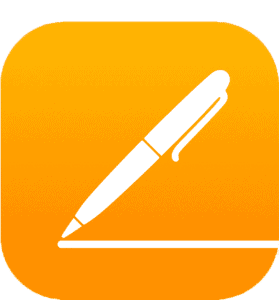Congratulations!
You’ve made it to the interview.
This means your application was received, the hiring manager was impressed, and you’re one step closer to the job you want.
All that’s left is the interview stage.
Interviews are direct conversations between two people (or groups of people) with the goal of determining if a work relationship will be a good fit.
You present yourself as the best candidate and share a little about your history, while the client or company explains how the company works and the details of the job.
Questions are asked and information is exchanged.
The entire conversation can last anywhere from 30 minutes to an hour.
Job interviews are usually scheduled at least a few days in advance, which is a deliberate detail — it gives you, the interviewee, enough time to prepare and get ready.
In this post, we’ll go over the best ways to get yourself set for your interview.
1. Know Your Audience
Like all good public speakers, it’s best to know a little more about your audience — or in this case, as much as you possibly can.
Put aside a few hours for proper interview preparation, and learn about the client or company.
Aside from a good online Google search session, where you can read about their history, services, and clients, talk to any friends or contacts who may have personal experience with them, as well.
Take a look at the company’s social media accounts (Twitter, LinkedIn, or Instagram stories can be particularly informative channels), and try to see if you can learn more about the actual people you’ll meet during the interview.
And if possible, use their product or service so you can get a first-hand feel for what they do.
2. Decipher the Job Description
Read, read, read, then read again.
The job posting is your cheat sheet for everything you’ll be expected to bring to the table, so it’s best to go through it thoroughly.
Read each requirement and skill line by line, mentally recall work experiences you’ve had that relate to each requirement.
Come up with a few good examples you can share that show how you’ve faced similar challenges, overcome them, and are able to do the same for this new company.
3. Give the Interview Questions Some Thought
It’s likely you’ll be asked a few of the most common interview questions — “What interested you in this opening?,” “Where do you see yourself in a few years?,” or “What salary are you looking for?” Even if you’ve been around the interview block a few times, it’s best to still anticipate each one.
Create a list of potential questions you may be asked and think thoroughly about how you’ll answer each of them.
Not just a general idea, either — craft complete answers and practice saying them out loud or even do a mock interview with a friend.
This will help you refine the wording, get comfortable with your answers and body language, and gain confidence when it comes time for the actual interview.
4. Know What You Want to Say
An interview is the perfect time to demonstrate your unique value proposition to the client or company.
Highlight what sets you apart from others in your position, and prepare a few examples of your specific experiences that best underscore this.
If you have any hard skills or certification, it may be good to weave these into your shared experiences, as a reminder of your specific technical expertise.
You should also come up with a quick phrase for times you need to stall and fill in the dead air — something like, “That’s a good question,” or “It’s great you asked that.”
These are better than the usual “Ummm” and just enough to buy you the few seconds you need before starting the next question.
5. Pinpoint Any Sensitive Subjects

Everyone has an area they’re particularly nervous about — a past firing, a gap year, or even questions about their specific career goals.
Most people simply cross their fingers and hope these won’t come up, which often leaves them fumbling for an answer when it does.
This rarely ends well for the applicant.
Instead, take control of any less desirable topics of conversation.
Figure out what yours are so you can come up with the best way to approach them.
Craft a few well-worded explanations and practice saying them out loud a few times until you’re comfortable discussing the subject.
6. Prepare Your Own Questions
As the interview process wraps up, the interviewer will usually ask if you have any questions for them.
Don’t take this as an additional opportunity to highlight more of your skills — this is the time to find out if the job is really the one that you want.
Prepare a few thoughtful questions that you truly want to know the answers to, such as “What do you like best about working for the company?” or “What would the first week of work in this position be like?” This shows that you’ve done your homework and have given the position some real thought.
7. Dress Accordingly
Whether the interview is in person or online, you’ll still want to make a good first impression.
Pick an interview outfit that’s in accordance with the company’s dress code — formal for more conservative companies, and casual for younger companies or startups.
If you’re not quite sure, ask anyone you know from the company about how they usually dress, check out their website for any photos of the team, or simply err on the side of something more formal.
Once you have a general direction, prepare an appropriate outfit and give yourself a little grooming a few days prior to the interview (i.e., a haircut or a shave).
If you’re doing a video interview, you may also want to decide on the best place to take the interview.
Select a spot that’s bright, quiet, and has a clean, professional background.
8. Get Into the Right Headspace
It’s best to start getting ready for your interview at least 30 minutes before the actual appointment — longer if you need to travel to a specific location.
Take the time to relax, walk off any excess energy, and review any notes you’ve made.
If you’re especially nervous, it may help to imagine that the interview isn’t for a potential employer, but rather a client or even a partner you’re speaking with about a collaboration.
The more you think of the interview as a meeting of peer minds, the less nervous you’ll be and the better it will go.
Just remember, you’ve made it this far — the client or company is already interested in you.
All you have to do now is prove them right.
9. Follow Up
Although technically not part of interview prep, it’s always best to have a good follow up practice in place.
Take time to send your interviewer a brief thank you note or an email that expresses your appreciation for the opportunity.
Saying thank you is a good personal touch to cap off every meeting, and ensures that the interviewer will remember you as an ideal candidate for the position.
It’s Time to Talk the Talk
You’re not trying to execute a perfect interview with all the right answers.
You’re trying to discover if there’s a good fit between you and the hiring client or company.
The best way to do this is by preparing yourself (probably twice as much as you think you should), getting comfortable with your answers, and finally, letting things play out as naturally as possible when it comes time for the actual interview.








